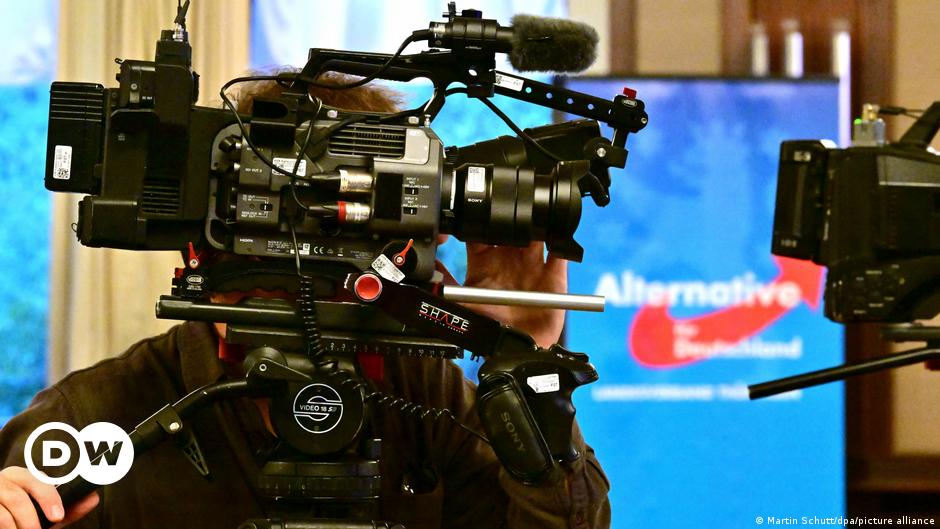The end of an era is never easy. In sports, business and entertainment, every generation is compared with the icons of the past. In politics, the stakes are even higher: Unless handled well, a transition risks destabilizing entire countries. It’s a reality that both autocratic regimes like the former Soviet Union and China, and the steadiest of democracies like America and India, have experienced.
Luckily for the world, the 21st century’s most momentous political transition to date is unlikely to go that way. As Angela Merkel’s 16-year stint as Germany’s chancellor winds down following Sunday’s election, her country is showing why it’s more than a leader in just technology, manufacturing and science. It might also be the world’s most robust major democracy.
Charu Sudan Kasturi , Senior Editor
Mutti’s Not Gone Yet
Chaotic. Uncertain. Unsteady. These are just some of the words the American and British press have used to describe Germany’s immediate future after the election threw up a fractured mandate. Indeed, for the first time in five federal elections, Merkel was not on the ballot when Germany voted for its next government.
But the chancellor, who had declared in 2018 that she wouldn’t run again for the post of chancellor, isn’t quite done: She is now poised to handhold Germany by overseeing a smooth transition of power, very possibly to her political rivals, the Social Democratic Party (SPD). And what might seem like a political scramble for power to countries with a two-party system could actually hold valuable lessons in democracy for the U.S., in a week when Congressional Democrats and Republicans are sparring over everything from infrastructure to a potential government shutdown.
Merkel’s Christian Democratic Union-led alliance came second to the Social Democrats in the election. Both CDU leader Armin Laschet and the SPD’s chancellor candidate Olaf Scholz have said they’ll try to form coalition governments with the two next-biggest parties, the Greens and the pro-market Free Democrats.
While both leading parties engage in alliance negotiations — and these could drag on for months — Merkel will stay in office. Yet the prospect of the losing party’s incumbent head of state holding power during a political transition isn’t sparking any anxiety, as it has in recent times in the U.S. and as would undoubtedly happen in other deeply divided major democracies like India and Brazil. Instead, Merkel remains more popular than most other world leaders even after four terms. And even her fiercest political opponents know that she will peacefully hand over power to Scholz if he is able to cobble together a governing coalition.
be what's trending
We’re always telling you the next big thing in names, trends and ideas, so listen up: These colorful kicks are the next big thing. Sustainable fashion is all the rage, and thanks to Cariuma , you don’t have to sacrifice style and comfort. You can look good while doing good!
Best of all, we’ve gotten OZY readers an exclusive $15 off when you use code OZY15. Get your pair today!
Conspiracies and Coalitions
That peaceful democratic transitions are even worth discussing is a pointer to the times we live in. Brazilian President Jair Bolsonaro is trying to discredit the country’s election system — yes, the same one that brought him to power three years ago — ahead of 2022’s vote, as criticism of his handling of the COVID-19 pandemic rocks the support he has enjoyed. He has refused to commit to handing over power if he loses.
In India, the world’s largest democracy, it’s the center-left that’s guilty of conspiracy theories. Opposition parties have often alleged that electronic voting machines used by the country can be hacked, and have insinuated that Prime Minister Narendra Modi’s election wins are in part the result of such crimes. No one has presented conclusive evidence of large-scale tampering of electronic voting machines in India.
And the memories of Jan. 6 — when far-right supporters of then-President Donald Trump attacked the Capitol seeking to prevent the certification of Joe Biden’s election win by Congress — are still fresh for most of us.
Against that backdrop, Merkel’s otherwise unremarkable final political act — the transfer of power to Germany’s next chancellor, whoever it is — should serve as a reminder of how mature leaders and stable democracies work.
But there are other vital takeaways from Germany’s election. Yes, it might take months before the country has a fresh government. However, the fact that the biggest parties know that they can’t hope to come to power on their own helps soften rough, extremist edges. Compromise is not a dirty word but a process of give-and-take that keeps all sides in check.
Consider this: Germany has never had a government run by a single preelection alliance since reunification three decades ago. Merkel might be the world’s most prominent leader of the 21st century, but each of her four governments has been a coalition — mostly with her principal rivals, the SPD. Helmut Kohl, Germany’s longest-running elected leader, never had an absolute majority. Go back further, and you’ll find that West Germany’s last single-party government was in 1961.
That means that the SPD and the Greens, both of which want to expand labor rights if they come to power, are hoping to form a government with the staunchly pro-business Free Democrats. None of these parties will get everything they want, but Germany will get a government that represents a consensus that’s acceptable to all of them — and so, presumably, to their voters.
Lessons From Germany
This isn’t just some German quirk. Iceland, Norway and Sweden, the three countries that rank at the top of the Economist Intelligence Unit’s Democracy Index, have only had coalition governments for several decades now, with no single party close to commanding a majority on its own. It’s the same story with the Middle East’s only true democracy, Israel. Perhaps what America needs is a multiparty system.
And if you want more evidence of how Germany’s election has shown a political alternative different from the polarization we’re seeing in the U.S. and many other key democracies, look no further than the fate of the major parties. The democratic socialists, Die Linke, and the far-right Alternative for Germany both lost votes and seats. The SPD and the CDU, both centrist parties with a fundamental allegiance to Europe and a commitment to the Transatlantic partnership, are the country’s biggest political formations.
To be sure, filling Merkel’s shoes won’t be easy for either Scholz or Laschet. But they know that if they can fit into them, they’ll have Germany behind them. Sunday’s vote has shown that even in 2021, moderate policies have their appeal and that the centrist footprint can grow. Merkel’s party might have lost, but her vision has won.
More on OZY
Today on ‘The Carlos Watson Show’
Actor Vincent D'Onofrio stops by to discuss his craft, growing up as the child of hippies and the actors who never cease to amaze him. Hear the Law & Order and Godfather of Harlem star talk about playing controversial televangelist Jerry Falwell in the new drama The Eyes of Tammy Faye .
Follow OZY on Insta
When it comes to your daily news, don’t miss a beat and follow OZY on Instagram . Stay informed and up-to-date even when you’re on the go.






































